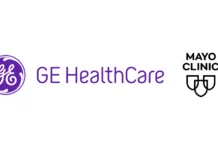Retirement is a coveted aspiration that countless individuals strive to attain. The mere thought of bidding farewell to the daily grind and relishing the rewards of a well-deserved respite is undeniably alluring. Yet, embarking on the path of early retirement demands meticulous contemplation and meticulous preparation, especially when it concerns the realm of health insurance.
In this insightful article, we shall explore the paramount significance of health insurance for those who retire early, shedding light on various strategies that can shield you from unexpected setbacks when it comes to your healthcare requirements. By delving into this crucial subject matter, we aim to equip you with the knowledge and tools necessary to navigate the intricate landscape of healthcare coverage during your golden years of retirement.
The Rising Importance of Health Insurance for Early Retirees
Retirement is a milestone that signifies the culmination of years of hard work and the beginning of a new chapter in life. As individuals approach this significant stage, they often prioritize financial planning, investment strategies, and envisioning their dream lifestyle. However, amidst the excitement and anticipation, the importance of health insurance for early retirees is an aspect that frequently goes unnoticed or underestimated.
One common misconception among prospective retirees is the assumption that Medicare will automatically provide comprehensive coverage once they retire. Unfortunately, this assumption can lead to a costly oversight. The reality is that Medicare eligibility commences at the age of 65, and if you choose to retire before reaching this milestone, you’ll need to explore alternative options for health insurance coverage.
The significance of securing adequate health insurance for early retirees cannot be overstated. Retiring before the age of 65 means potentially facing a coverage gap, leaving you vulnerable to unforeseen medical expenses. Without suitable health insurance, you may be exposed to exorbitant out-of-pocket costs for routine check-ups, prescription medications, specialist visits, and even emergency medical care.
Recognizing the potential financial risks associated with inadequate coverage, early retirees must take proactive steps to ensure their healthcare needs are met. This entails thoroughly researching and exploring various health insurance options that can bridge the gap between retirement and Medicare eligibility.
Additionally, it is crucial to assess your overall health and potential healthcare needs as part of your retirement planning. Taking into account any pre-existing conditions, anticipated medical treatments, and prescription medications can help you make informed decisions regarding the level of coverage you require.
Understanding the Challenges of Health Insurance for Early Retirees
Retiring early means you need to bridge the gap between your retirement and Medicare eligibility. This gap can last several years, leaving you vulnerable to unexpected medical expenses. Without proper health insurance coverage, you may find yourself facing exorbitant healthcare costs that can quickly deplete your retirement savings.
Therefore, it’s essential to plan ahead and consider all available options to secure adequate health insurance coverage during this transitional period.
Exploring Health Insurance Options for Early Retirees
Employer-Sponsored Health Insurance: If you retire early but your employer offers retiree health benefits, this can be a viable option. However, not all employers provide retiree health benefits, so it’s crucial to verify the availability and terms of coverage before making any decisions.
COBRA Coverage: The COBRA, abbreviation for Consolidated Omnibus Budget Reconciliation Act, allows you to continue your employer-sponsored health insurance coverage for a limited time after leaving your job. While COBRA can be expensive since you’ll be responsible for the full premium, it can serve as a temporary solution until you find a more affordable option.
Health Insurance Marketplace: The Health Insurance Marketplace, established under the Affordable Care Act, offers health insurance plans for individuals and families. You can explore different plans and choose the one that best fits your needs and budget. However, keep in mind that the cost of these plans can vary depending on your income and location.
Spouse’s Employer-Sponsored Insurance: If your spouse continues to work and has access to employer-sponsored health insurance, you may be able to join their plan. This option can provide you with coverage until you become eligible for Medicare.
Health Savings Accounts (HSAs): HSAs, or Health Savings Accounts, are specialized savings accounts created to provide tax benefits and assist individuals enrolled in high-deductible health plans in managing their healthcare costs. If you retire early and opt for a high-deductible health plan, you can contribute to an HSA and use the funds to pay for qualified medical expenses. HSAs provide tax benefits and can be a valuable resource for early retirees to save specifically for their healthcare expenses.
Long-Term Considerations for Health Insurance
While securing health insurance coverage during the early retirement transition is crucial, it’s equally important to consider your long-term healthcare needs. Here are some factors to keep in mind:
Medicare Eligibility: As mentioned earlier, Medicare eligibility begins at 65. It’s essential to familiarize yourself with the enrollment process and key deadlines to ensure a smooth transition to Medicare when the time comes.
Medigap Plans: Medigap, also known as Medicare Supplement Insurance, is designed to help cover the gaps in Medicare coverage. Purchasing a Medigap plan can provide you with additional financial protection and peace of mind during retirement.
Long-Term Care Insurance: Long-term care insurance helps cover the costs of extended care services, such as nursing home care or in-home assistance. Considering the rising costs of long-term care, having this type of insurance can help protect your retirement savings from being depleted due to unexpected healthcare needs.
Health Insurance for Early Retirees Abroad: If your early retirement plans include living abroad, it’s crucial to understand the healthcare system in your chosen destination. Some countries may offer affordable and comprehensive healthcare options for expatriates, while others may require you to purchase international health insurance.
Conclusion
Early retirement can be a rewarding phase of life, but it requires careful planning, especially when it comes to health insurance. Don’t let health insurance catch you off guard and derail your retirement dreams. Take the time to explore different options, consider the transitional period before Medicare eligibility, and plan for long-term healthcare needs. By doing so, you can enjoy the benefits of early retirement without compromising your financial security or peace of mind regarding your healthcare coverage.
Remember, health insurance for early retirees is a critical component of your retirement plan. Give it the attention it deserves and seek professional guidance if needed to ensure you make informed decisions about your health insurance coverage throughout your retirement journey.


















